Precision manufacturing enables resilient supply chains through process intensification, automation, circular and distributed materials reuse. This symposium will explore the state-of-the-art and new ideas to bridge the gap between additive manufacturing (AM) and self-assembly (SA). These two methods, working together at scale will enable automated, programmable, and efficient manufacture of functional parts with macro and nanoscale features. The SAMAM capability has been identified by DARPA and others, including CSIRO, as an emerging challenge area in precision manufacturing. The conference will be chaired by CSIRO’s Science Leader in Active Materials, Dr Antonella Sola.
Speakers

Bronwyn Fox
- Professor Bronwyn Fox is CSIRO’s Chief Scientist, and is an internationally recognized expert on carbon fibre and composite materials. She has a keen interest in the manufacturing of lightweight materials, and combining design with manufacturing in more integrated and robust ways.

Gordon Wallace
- Professor Wallace is an Australian Laureate Fellow at the University of Wollongong. He is the Executive Director of Australian Research Council (ARC) Centre of Excellence for Electromaterials Science and also Founder and Director of the Intelligent Polymer Research Institute.

Gwénaëlle Proust
- Gwénaëlle Proust is a Professor of Materials Engineering in the School of Civil Engineering and the Director of the Sydney Manufacturing Hub at the University of Sydney. Her research projects encompass investigating and modelling manufacturing processes of materials for more efficient devices.

Mark Hodge
- Dr Mark Hodge has served as Chief Executive Officer of DMTC since its inception in June 2008, overseeing the organisation’s success in a range of activities centred on Australia’s defence and national security. Mark has worked with over 500 Australian SMEs and multinational manufacturers to address key defence and national security challenges and drive capability outcomes to meet Australia’s sovereign national security objectives.

Kourosh Kalantar-Zadeh
- Professor Kalantar-Zadeh is an Australian Laureate Fellow and the Director of the Centre for Advanced Solid and Liquid based Electronics and Optics at UNSW. His research interests include liquid metals, 2D materials, chemical and biol sensors, gastroenterology, medical devices and microfluidics.
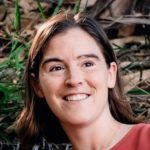
Becca Murray
- Dr Murray is the chair of Standard Australia’s MB-028 Additive Manufacturing committee, Innovation Advisor to the Australian Defence Innovation Steering Group, and a senior research fellow at Herston Biofabrication Institute. She drives evidence-based innovation and implementation in the highly regulated medical and defence industries.
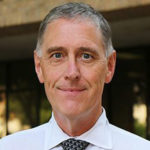
Benny Freeman
- Professor Freeman is the William J. (Bill) Murray, Jr. Endowed Chair of Chemical Engineering at The University of Texas at Austin. He is also Director of the US Department of Energy, Energy Frontier Research Center for Materials for Water and Energy Systems (M-WET), and he is Editor-in-Chief of Polymer.

Cuie Wen
- Professor Wen leads the biomaterials research group at RMIT University, conducting research into biocompatible titanium, magnesium, iron, zinc and their alloys and scaffolds for biomedical applications, applying advanced manufacturing techniques.

Erol Harvey
- Professor Harvey is the CEO at the Aikenhead Centre for Medical Discovery. He has been on many Australian Government committees, is on the Board of the National Imaging Facility and serves as Chair of the Industry and Innovation Forum of ATSE.

Sally McArthur
- Professor McArthur is the Director of Deakin University’s Institute of Frontier Materials and is a fellow of the ATSE. She leads a diverse group working to develop functional materials and processes to address the challenges of sustainable manufacturing.
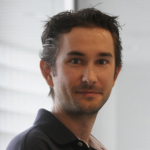
Andrey Molotnikov
- Associate Professor Molotnikov is the Deputy Director of RMIT’s Advanced Manufacturing Precinct and recognized as a leader in Additive Manufacturing. His areas of expertise is macro processing with lasers and developing novel additive manufacturing techniques.

Sophie Primig
- Sophie Primig is a Scientia Associate Professor of physical metallurgy at UNSW. Her group’s research is on designing alloys for high-performance applications such as aerospace, with interests in additive manufacturing.

Michael Edwards
- Micheal Edwards is the Director, Boeing Research & Technology – Asia Pacific. Michael carries executive responsibility for the delivery of the Company’s research portfolio in the region and oversees a research team focused on creating the future for the Boeing enterprise globally.

Laura Villanova
- Dr Villanova is a Research Scientist from Institute of Molecular Biotechnology at the Technical University of Graz, Austria. Her areas of expertise include statistical analyses, experimental design and understanding dataset characteristics (meta-features) for meta-learning for molecular classification.

Peter Lynch
- Dr Lynch is the Director of InSitX at Deakin University. He is a world renowned expert in the characterization materials with X-rays, particularly developing novel in-situ techniques.

Paolo Falcaro
- Professor Falcaro leads a research group at the Institute of Physical and Theoretical Chemistry at the University of Graz, Austria. His research spans the fields of self-assembled materials, film deposition and crystal engineering.

Natasha Wright
- Natasha Wright is the Research Director of CSIRO’s Materials Characterisation and Modelling program, where she acts as a trusted advisor for CSIRO and industry regarding the most appropriate and holistic way of determining materials properties.

Matthew Barnett
- Professor Barnett is an ARC Laureate Fellow and has been a researcher at Deakin University for the past 23 years. He is the Director of the ARC Training Centre in Allot Innovation for Mining Efficiency, developing alloys and processes that better suit sustainability and the circular economy. He was formerly the director of the Institute of Frontier Materials and has spent 7 years working in the steel industry.
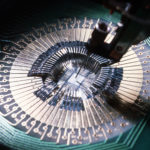
Industrial Workshop with George Feast
- Technical forum investigating the benefits of self-assembly and advanced precision additive manufacturing for Australian industrial landscape. Led by George Feast with the contribution of Dr. Oliver Hutt (CEO Boron Molecular), Kiriti Rambhatla (Founder, Metakosmos), Dr. Cherry Chen (Research Scientist, CSIRO Manufacturing) and Prof. Chris Berndt (Director SEAM, Swinburne)
Leaders from Industry and Research Organizations will also head Round Table Discussions.
Many areas would benefit from the advancement of precision additive manufacturing, including, for example, nanoelectronics, optics, energy storage and harvesting, medicine. Examples relevant to manufacturing and defence/space capability include materials with persistence for mission critical assets, such that no repair is necessary while the asset is being used. Another example is multi-material hierarchical structures and enzymatic/catalytic devices that identify, trap, and remediate toxic compounds. Hierarchical architectural modification based on self-assembly could be leveraged for programming new adaptive materials that deploy a controlled change in shape or function over time, thus introducing next-generation 4D printing. The interactive symposium couples a technical forum with activity based networking.
Schedule
DOWNLOAD THE TECHNICAL PROGRAM AND ABSTRACTS HERE.
DAY 1: The first day will include plenary talks from world-leading researchers and pioneers in the field, establishing the framework for integrating self-assembly principles with additive manufacturing technologies. The day will conclude with a cocktail function featuring an interactive Poster Session open to everybody, spotlighting contributions from students and young researchers.
DAY 2: The morning features a round-table discussion on Precision Manufacturing, which will be followed by an industrial workshop. The afternoon is reserved for an inclusive tour to Red Hill Estate, with the day culminating in a gala dinner at the famous Max’s Restaurant.
DAY 3: Keynote talks will discuss the future of self-assembly in additive manufacturing. The symposium will close with a tour to CSIRO’s facilities.
Interactive panel sessions will help establish whether there is a current or future need for Academic Research Centres and/or Industry De-Risking Facilities to enhance competitiveness in advanced materials and manufacturing.
Venue and Gala Reception
Getting Here:
The symposium will be held at the CSIRO Clayton Campus, directly opposite Monash University. Please enter via the Main Entrance and head to the Central/Main Reception which is directly in front of the CSIRO entrance. The address is:
Research Way
Clayton Victoria 3168
More information about the site can be found at: https://www.csiro.au/en/about/locations/state-locations/vic/clayton
COVID-19 Safe Practice:
All attendees should maintain COVID safe practices while attending the CSIRO site.
Please do not attend a CSIRO site if you experience any symptoms of COVID-19 (or other contagious illnesses).
All presentations will be streamed online.
CSIRO supports individuals’ choices to wear face masks on CSIRO sites. We will be making face masks available to attendees. Please consider wearing a mask in any circumstance where it makes you (or others) feel more comfortable.Attendees need to comply with the Victorian Government’s COVID-19 requirements, including those that apply if you test positive for COVID-19 or if you are a close contact: https://www.coronavirus.vic.gov.au/im-a-covid-case-contact
Note: While all attempts will be made to have as many attendees on-site as possible, please keep in mind that the ongoing COVID-19 pandemic may cause rapid changes in allowable capacity.


Attending Online
All presentations will be streamed online. A link will be broadcast to participants via email closer to the conference commencement.
Gala Reception
The Gala Reception will be held at the internationally acclaimed Max’s Restaurant at Red Hill Estate and Winery on the Mornington Peninsula, one of Victoria’s premier scenic regions. Attendees can enjoy ocean views whilst overlooking the famous winery, and partake in social networking activities intended to foster collaborations. Private charted bus will be used to ferry attendees from the conference venue to the winery, and at completion of the reception, buses will return guests to the conference venue.
Please Note: The Gala Reception is included in the registration

Registration
Registrations to the conference can be made here.
All registrations include the gala dinner at Red Hill Estate
Regular delegates:
- Full registration, early bird (available to 31 July 2022) $400
- Full registration (from 1 August 2022) $500
Students:
- Student registration, early bird (available to 31 July 2022) $300
- Student registration (from 1 August 2022) $400
Key dates:
- Early bird registration 1 August 2022
- Poster submission 31 October 2022
- Conference 29 November to 1 December 2022
- Full length paper 31 December 2022
Abstracts and Proceedings
Self-assembly as combined with additive manufacturing is a new research area and we would like to explore any opportunities for future growth. We seek original contributions that focus on new approaches to additive nano-manufacturing, material-driven nanostructuring, self-assembly methods and their transferability to precision manufacturing.
Abstracts for the poster session should be submitted by mail to antonella.sola@csiro.au by 31 October 2022.
They should be submitted according to the template which can be downloaded here and will include:
- The title of the contribution
- Full names of all authors
- Affiliations of all authors
- e-mail address of the corresponding author
- Main text (Max. length: 200 words; max. 1 supporting image)
Submitted abstracts will be assessed on an ongoing basis. Accepted abstracts will be collected in a “Book of Abstracts” and shared electronically with all registered participants. Additionally, if interested, authors are encouraged to submit full-length articles to Smart Materials in Manufacturing:
https://www.keaipublishing.com/en/journals/smart-materials-in-manufacturing/
https://www.sciencedirect.com/journal/smart-materials-in-manufacturing/vol/1/suppl/C
Prospective authors should indicate their article belongs to the “Self-assembly meets additive manufacturing” cutting edge symposium in their cover letter. All submitted papers will be peer-reviewed according to the high-quality standards of the Journal. For all articles submitted before 31 December 2022, the article publication charge will be waived and accepted contributions will be published open access free of charge.
!! NEW !!
Poster Guidelines: available stands are approx. 145 cm high and 120 cm wide. Portrait orientation is highly recommended.
Sponsors
|
Emona Instruments is a leading high-tech engineering company specialising in electronics, electrical, education and additive manufacturing equipment. Emona also proudly design and manufacture in Australia, and export world-wide our Emona TIMS telecommunications training systems. |
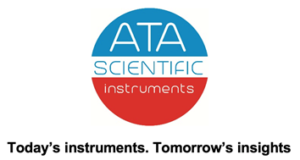 |
ATA Scientific supports a range of analytical instruments in the areas of Particle, Material and Biomolecular Science and SEM imaging. Discover the Phenom Desktop SEM with EDS for element ID; Micromeritics TriStar II for surface area and porosity. For more information. |
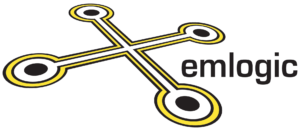 |
emlogic’s industrial ultra-precision (2µ) 3D printers reinvent additive manufacturing as an alternative scalable microfabrication approach, covering application sectors from MEMS, Microfluidics, MedTech, and Micro-Molding applications. Visit: https://emlogic.com.au |

